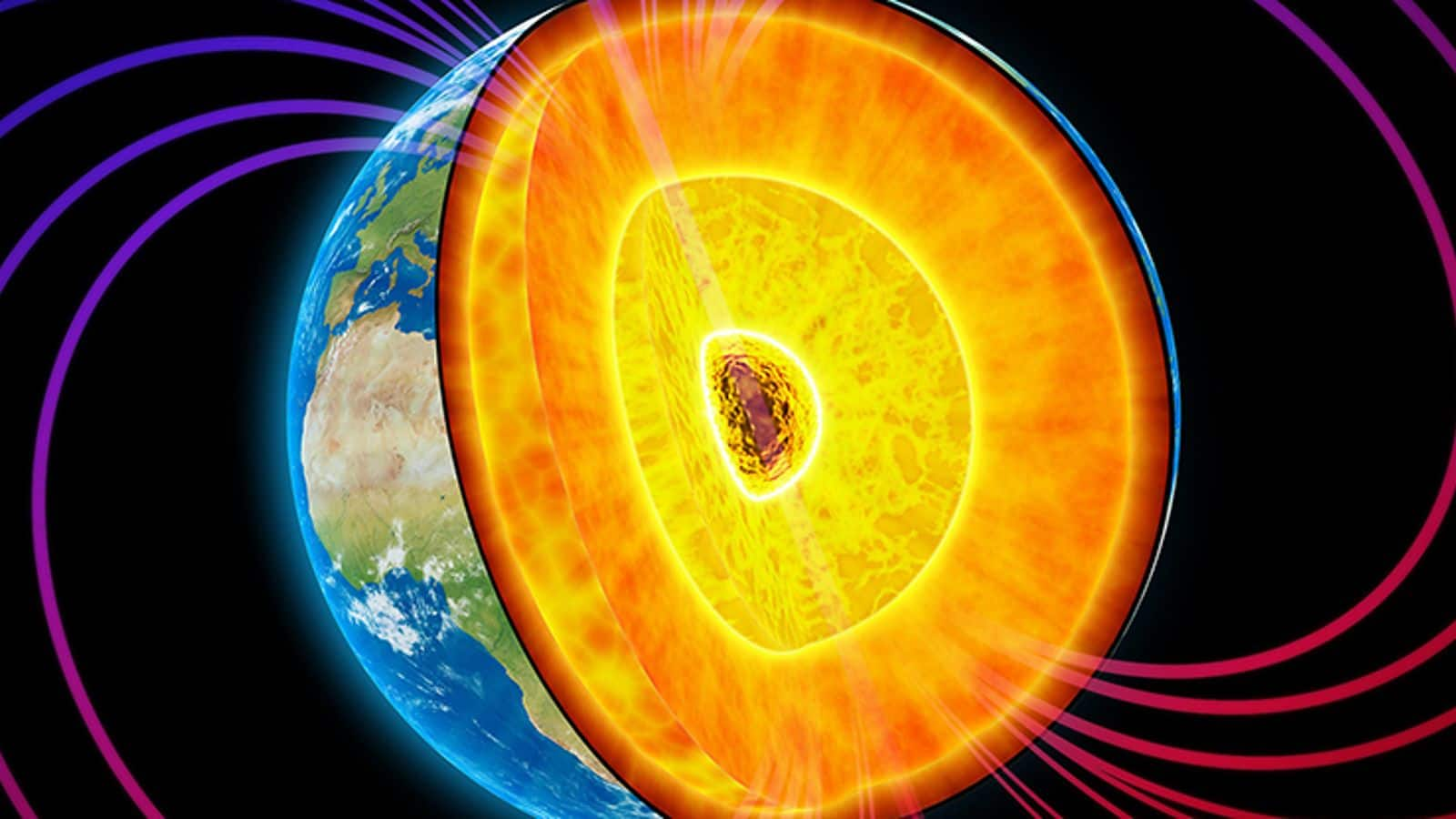
Earth's inner core rotation decelerates for first time in decades
What's the story
The rotation of Earth's inner core is slowing down, according to a recent study led by a team from the University of Southern California (USC). The researchers believe this change could slightly affect the length of our days, albeit by only a few fractions of a second. "When I first saw the seismograms that hinted at this change, I was stumped," said Earth scientist John Vidale from USC.
Research findings
Inner core's rotation slowdown confirmed by multiple observations
Vidale further explained, "But when we found two dozen more observations signaling the same pattern, the result was inescapable. The inner core had slowed down for the first time in many decades." The inner core—a super-hot, super-dense sphere of iron and nickel—is located over 4,800km beneath our feet. The study suggests that its apparent slowdown may be due to the constant motion of the liquid iron outer core generating Earth's magnetic field or gravitational forces.
Research details
Study methodology and data analysis
To analyze the inner core's movement, Vidale and his team examined data from 121 repeating earthquakes recorded between 1991 and 2023 around the South Sandwich Islands in the South Atlantic. They also used information from various nuclear tests. By studying how seismic waves speed up, slow down, and interact, researchers can estimate the position and movement of the inner core.
Negligible effect
Minimal impact on day-night cycle
The study also found that changes in speed, reversals, and wobbles in the inner core are not uncommon and do not indicate any impending disaster. However, we might experience very slight shifts in days and nights due to these changes. "It would be very hard to notice, on the order of a thousandth of a second, almost lost in the noise of the churning oceans and atmosphere," said Vidale.